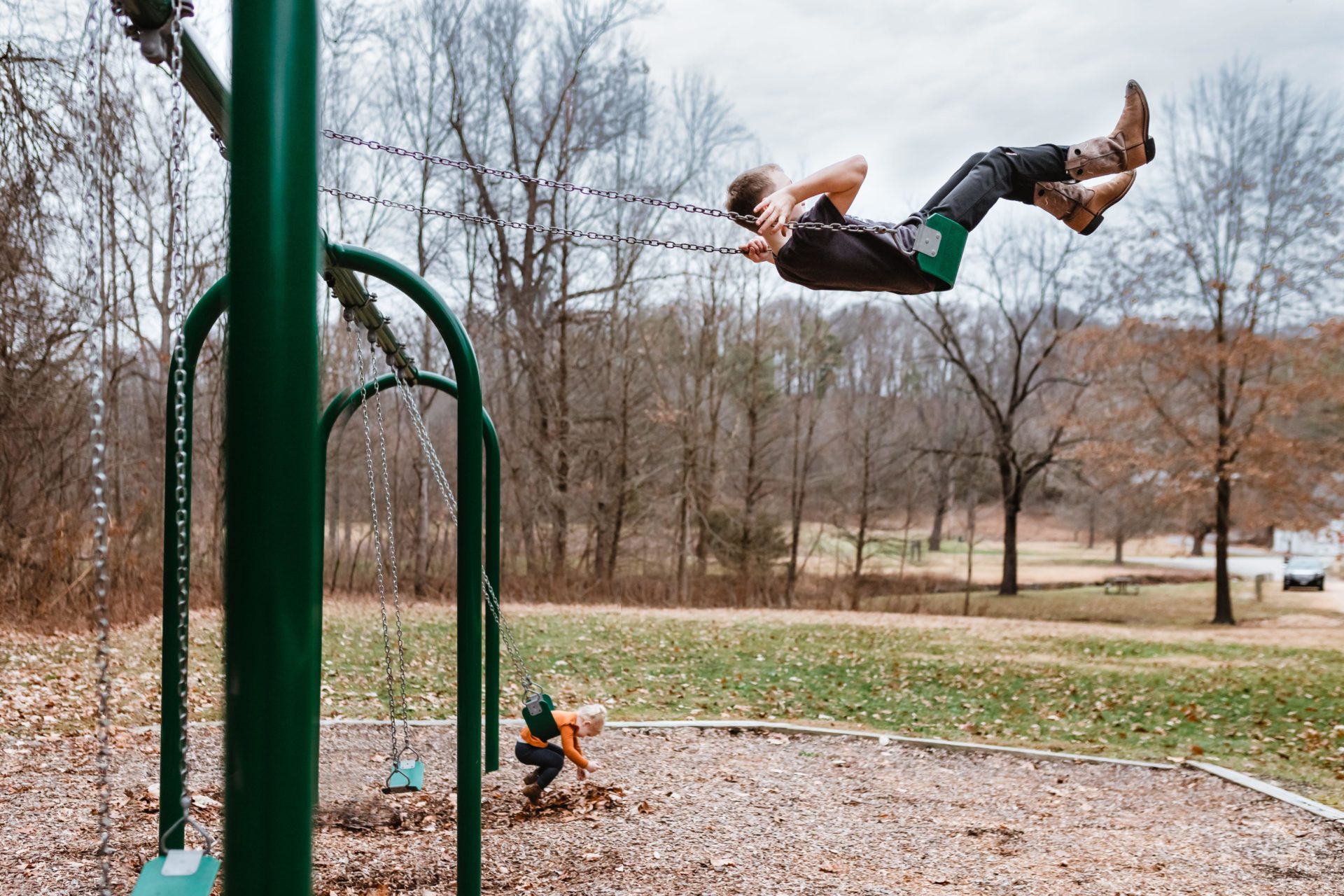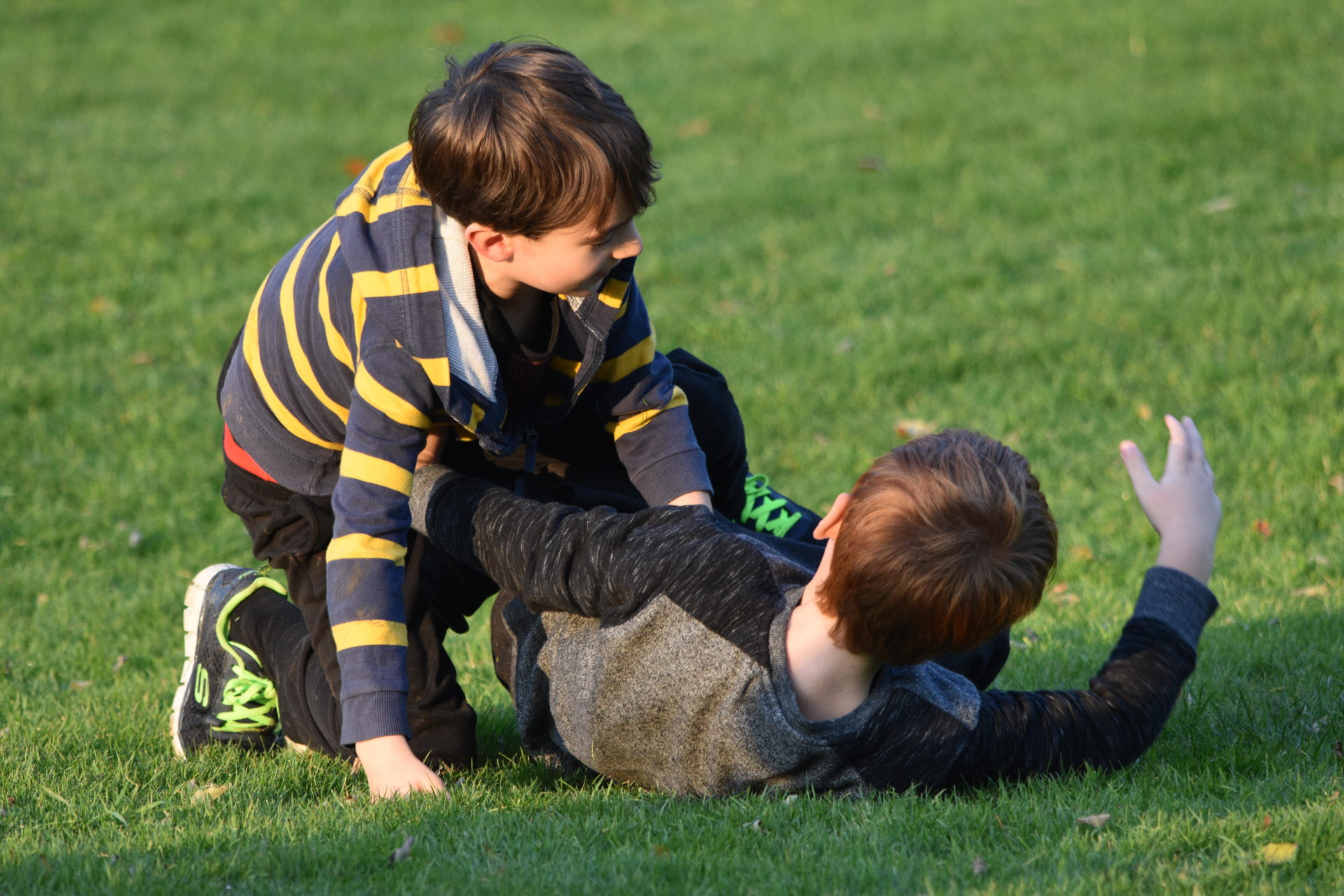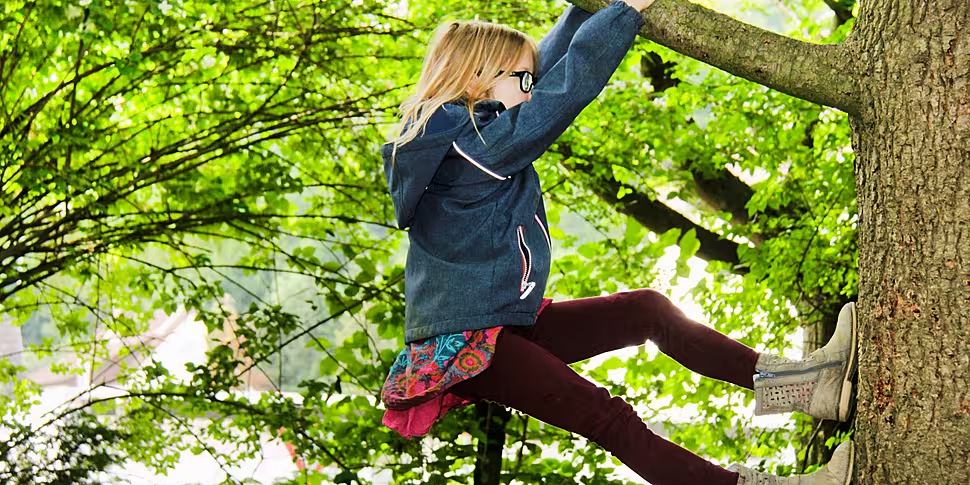Parents are ‘robbing children of great experiences and learning’ by playing it too safe and protecting them from ‘risky play’.
That’s according to Professor Ellen Beate, who told Newstalk Breakfast children need to feel “tickles in their tummy not knowing what happens”.
“Risky play is when children intentionally seek and explore risks in their play,” she said. “They try things they have never done before.”
While climbing a tree or wrestling with a friend are among the most basic of children’s activities, they are also among the most important.
“It allows for children to become better in terms of motor skills and physical skills,” Prof Beate said.
“It's also very important for their psychological and mental development – they become better in managing and assessing risk by themselves.”
 2M0H6CP Kids swinging on swing set at park in fall
2M0H6CP Kids swinging on swing set at park in fallDespite these benefits, Prof Beate has observed a drop in risky play among children – because of their worried parents.
“Adults are now less risk-taking when they become older, and they’re having less kids,” she explained.
Less risks and fewer children mean parents are supervising their kids more than ever before, preventing them from risky play.
The spaces for children to play have also lost their risky appeal, according to Prof Beate.
“We’re supervising our kids all the time and we made playgrounds so safe, there’s nothing to explore,” she said.
 R350DR Pre teen young boys fighting
R350DR Pre teen young boys fighting“We want to keep them safe – but in the long run, we are robbing them of great experiences and learning,” Prof Beate said.
“It's important that children get used to managing those things from an early age, so step-by-step they can become better at it,” Prof Beate said. “Instead of letting them loose when they 10 or 11 and they have no competence.
“[Parents] should back off a little bit – kids normally manage a lot more than us adults think.
“If we believe in them a bit more and let them try, we will notice that they are really good at managing risks.”









